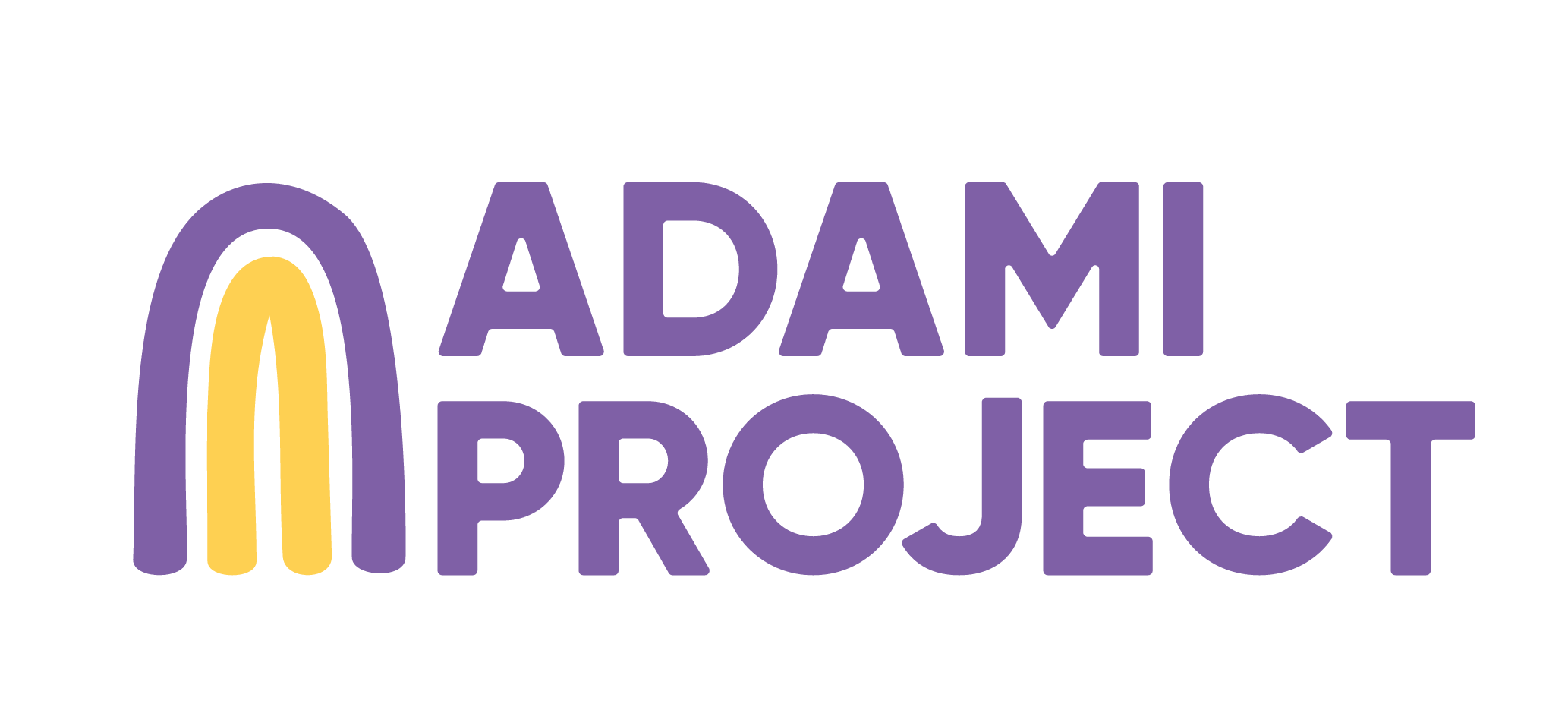It Takes a Village – Family Tracing and Mediation
The AdAmi Project’s Programme Manager Deborah (centre) speaking to a young mother and family member during family tracing and mediation activities.
The stigma attached in Sierra Leone to pregnancy outside of marriage means that many girls enrolled onto the AdAmi Project have been thrown out of their parents’ home, and forced either to find refuge at a friend’s house or survive on the kindness of strangers. At the time when they most need stability and security, these girls find themselves in unfamiliar surroundings and without the support of their family.
This is a highly dangerous position for a young girl and her baby, especially as there is no government assistance to offer them a safety net. And beyond their physical wellbeing, the breakdown of these relationships is also likely to have a long-lasting impact on a girl’s self-esteem and confidence. This can, in turn, affect her education or employment prospects and her ability to look after her child.
Given the holistic importance, therefore, of reuniting a girl with her family, we make family tracing (locating their whereabouts) and mediation one of the first steps of the programme
How do we go about it?
Whilst every case is unique, we typically follow four key steps whilst we carry out family mediation with the girls and their families. These are:
Step 1 - Introductions and building trust
Once our team has located a girl’s family, we host an introductory session with her family, where we introduce them to the AdAmi Project and how it will benefit their daughter.
This first step can be the most challenging as not all families are willing to re-engage with their daughter - often they are very angry with her or express a genuine concern that they cannot afford to look after their daughter as well as a baby.
To get around this, we demonstrate to them her commitment to attending school or pursuing training, dispelling any fears they may have that having a baby means she will not be able to support herself. In other cases, when appropriate, we involve close friends of the parents who are willing to use their influence to advocate for the daughter’s cause
Step 2 - Encouraging everyone to speak
We then allow both the daughter and members of her family to share their side of the story, encouraging them to really listen and empathise with one another. This is especially important to help parents understand their daughter’s perspective as in many cases, she will have been thrown out before she had a chance to explain what had happened to her or how she feels. We also need to let her parents share their concerns so that we can begin to address them in a constructive manner.
Step 3 - Finding solutions
Once the areas of conflict or concern have been identified, we work to find common ground and solutions which appeal to all parties. Our priority is to reach an agreement with the family to allow their daughter to return home.
Step 4 - Follow-up monitoring and support
We are realistic about the potential for reoccurring conflict in families. So, we make follow-up visits to check how they are doing and to see if they need further help from us, for example with childcare arrangements, so they can continue supporting their daughter.
Success Stories
In this second part of the blog series, Deborah (AdAmi Project’s Programme Manager) gives us a real life example of one of the successes the team have had.
Christian (right) with her daughter and mother
When we first got in touch with Christian’s parents, they expressed their anger and disappointment with Christian, who was eight months pregnant at the time. They believed she had brought shame on the family, and so she had been forced to move to a different village to live with a friend. But through the mediation process, we were able help the family to rebuild their relationship in time for the birth of Christian’s daughter. She is now back at school completing her studies at secondary school with the support of her family, who are very proud of how she is taking responsibility both for her own and her baby girl’s future.


